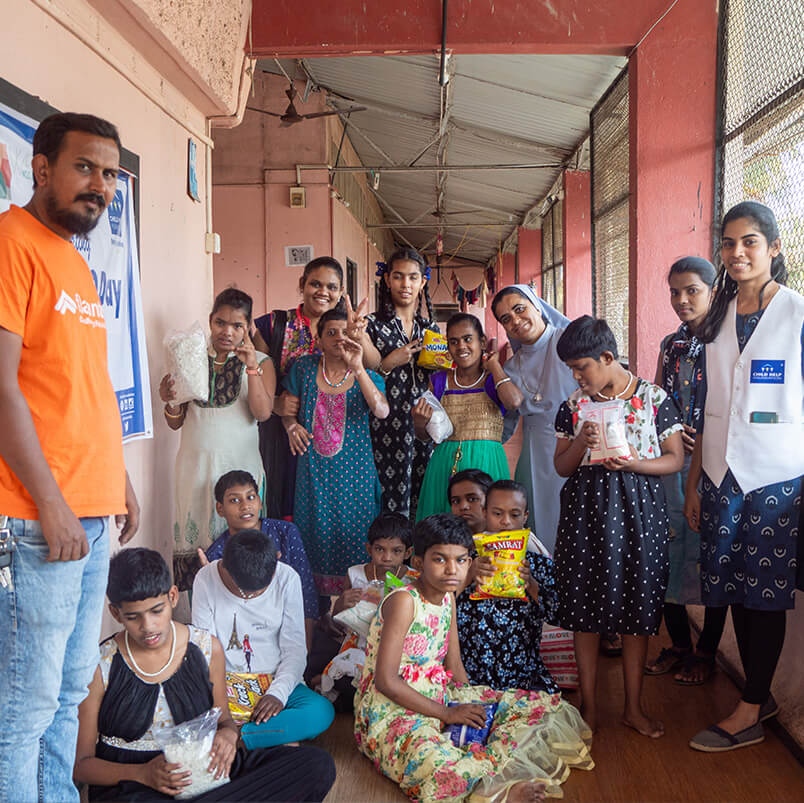Every year, April 2nd is observed as World Autism Awareness Day, a day dedicated to increasing understanding and acceptance of autism spectrum disorder (ASD). Autism is a complex neurodevelopmental condition that affects communication, social interaction, and behaviour.
Autism spectrum disorder (ASD) is not a disease but a condition that influences how a person perceives the world. It manifests in various ways, making each individual unique. Some people with autism have exceptional skills in mathematics, music, or memory, while others may require support in their daily lives. Early diagnosis and intervention play a crucial role in helping individuals with autism lead fulfilling lives.
The autism spectrum is broad, and individuals with autism may have different levels of support needs. While some people with ASD may communicate verbally, others may rely on assistive communication tools. Some individuals may have heightened sensory sensitivities, making them more responsive to lights, sounds, and textures. Understanding these differences is key to creating an inclusive society that respects and accommodates their needs.
Early diagnosis of autism is essential to provide the right interventions and support. While every child develops at their own pace, certain signs may indicate autism spectrum disorder. These include:
- Delayed Speech and Language Skills: Some children with autism may not speak by the expected age or may have difficulty forming sentences.
- Limited Eye Contact: Avoiding eye contact and preferring solitude over social interactions are common signs.
- Repetitive Behaviours: Engaging in repetitive actions, such as hand-flapping, rocking, or repeating words and phrases (echolalia).
- Difficulty Understanding Emotions: Struggling to interpret facial expressions, tone of voice, or body language.
- Unusual Sensory Responses: Being overly sensitive or indifferent to sounds, lights, textures, or pain.
- Rigid Routines: Strong preference for routines and resistance to change.
If parents or caregivers notice these signs, it is advisable to consult a developmental pediatrician, psychologist, or specialist for a thorough evaluation.
While there is no cure for autism, early intervention and tailored therapies can significantly improve a child's development and quality of life. Some common treatment approaches include:
- Behavioral Therapy: Applied Behavior Analysis (ABA) helps children develop social, communication, and life skills.
- Speech and Language Therapy: Assists children in improving their speech, understanding language, and effective communication.
- Occupational Therapy: Focuses on enhancing fine motor skills and daily activities like dressing, eating, and writing.
- Sensory Integration Therapy: Helps children manage sensory sensitivities and improve their ability to function in various environments.
- Educational Support: Special education programs and Individualized Education Plans (IEPs) can help children thrive academically.
- Parental Training and Support Groups: Equipping parents with strategies to support their child’s unique needs and build a nurturing environment.
People with autism often face challenges in education, employment, and social inclusion. Due to a lack of awareness and understanding, they may experience discrimination or exclusion in society. Common challenges include:
- Communication Barriers: Many individuals with autism find it difficult to express their thoughts or interpret social cues.
- Sensory Sensitivities: Some individuals experience heightened sensitivity to sounds, lights, or textures, making everyday environments overwhelming.
- Limited Access to Education and Employment: Many schools and workplaces are not equipped with the necessary resources to accommodate individuals with autism.
- Social Stigma: Misinformation and stereotypes often lead to social exclusion and misunderstandings about autism.

Awareness and inclusivity start with each one of us. Here are some ways you can contribute:
- Educate Yourself and Others: Read about autism, attend awareness events, and share information within your community.
- Encourage Inclusive Practices: Support businesses and schools that adopt inclusive policies.
- Volunteer or Donate: Many organizations, work towards supporting individuals with autism. Your time, resources, or donations can make a significant difference.
- Be Empathetic and Supportive: A little kindness and patience can go a long way in making individuals with autism feel accepted and valued.
On this Autism Awareness Day, let us take a pledge to create a more accepting and inclusive world. You can also support an autistic child by contacting Child Help Foundation through our website or social media account. By spreading awareness, advocating for equal rights, and supporting initiatives that promote inclusivity, we can ensure a brighter future for all.
